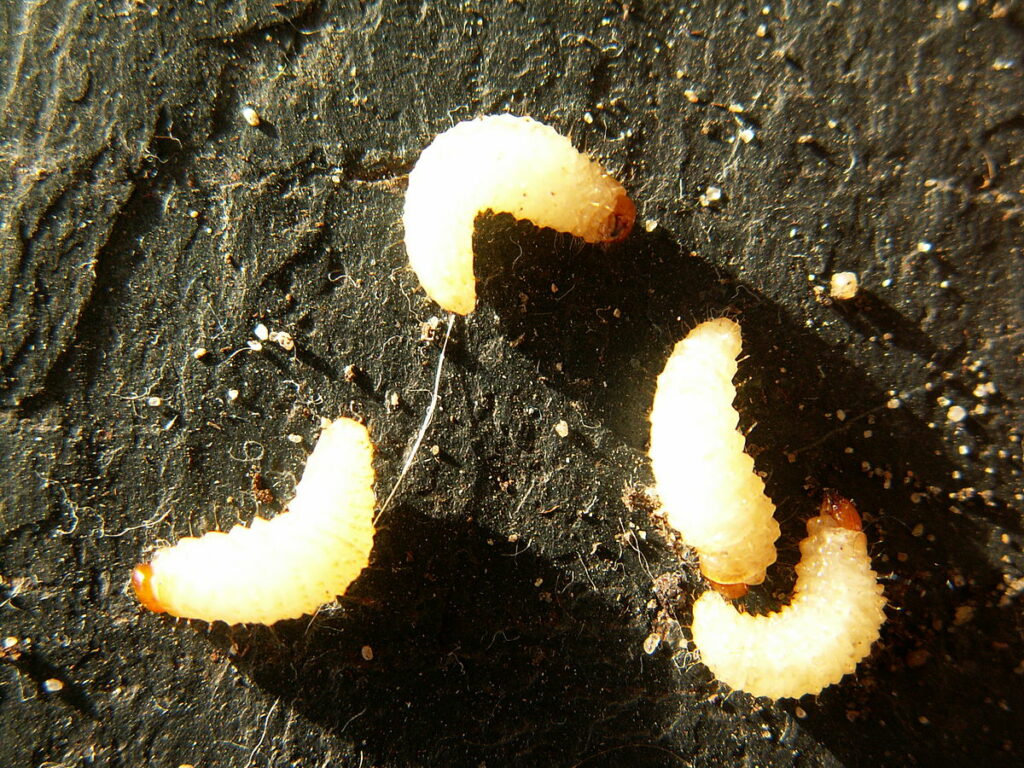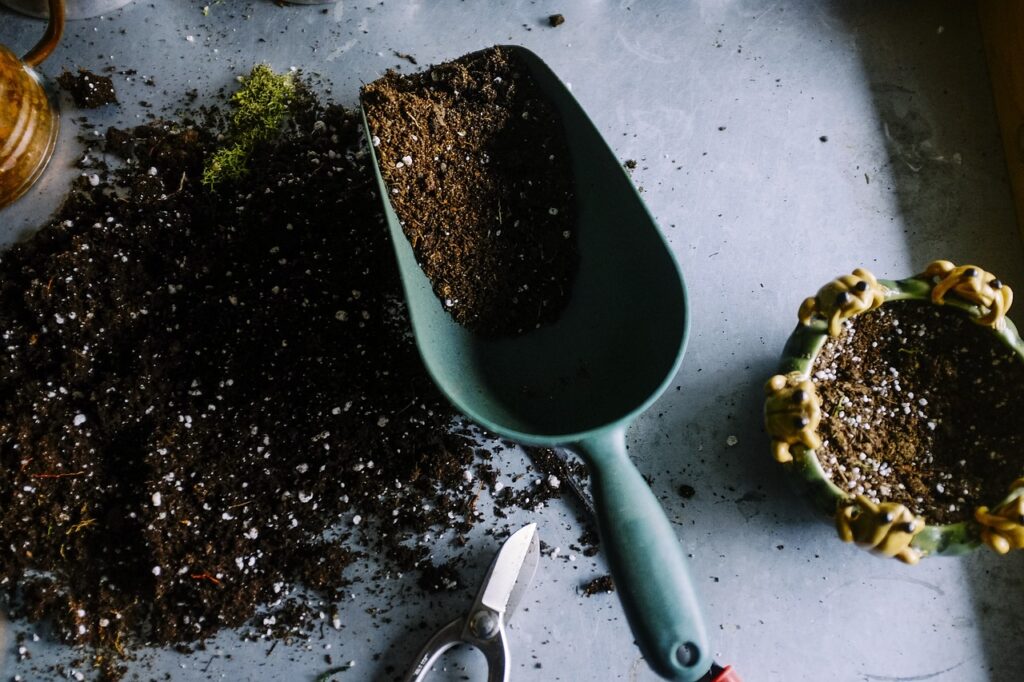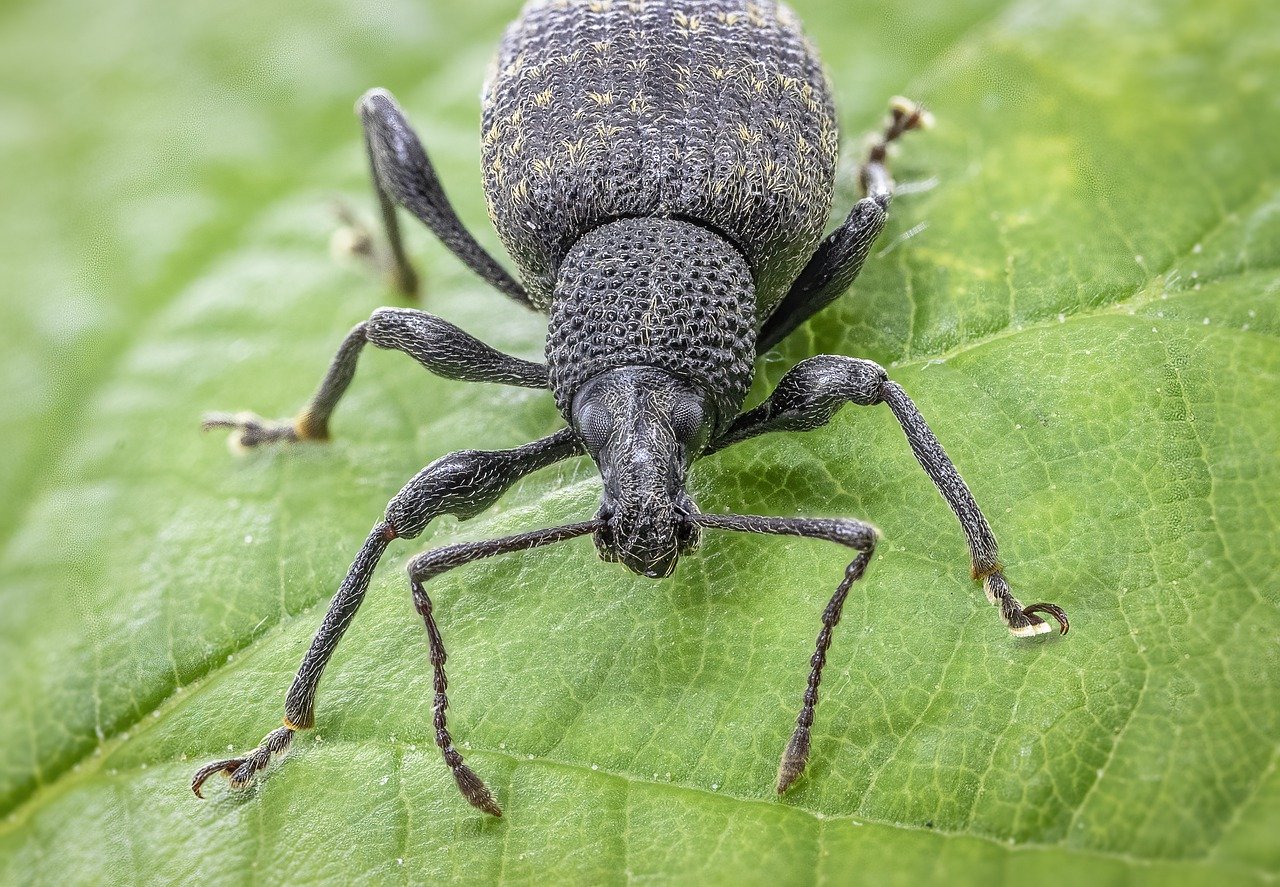There are many garden pests that can damage and kill your plants. One of the most common garden pests is the vine weevil. These pests are brownish-black insects, usually around 1cm in length. But what are vine weevils exactly? And what can you do about these pests if you find them in your garden? Here is everything you need to know about vine weevils…
Vine weevil facts you need to know
It’s important to have a quick overview of vine weevils, so you know what you are dealing with in your garden. Knowing your enemy is half the battle.
- Vine weevils are beetles. Vine weevils are insects native to Europe, but they are also very common garden pests in North America. There are many different weevils out there. And like other weevils, vine weevils eat plant leaves and roots. Potted plants are more vulnerable to vine weevils. But vine weevil infestations on open-ground plants are not unheard of. You should get rid of these garden pests immediately because they threaten the health of your plants.
- They can severely damage and kill your plants. Adult vine weevils and their grubs have different ways to wreak havoc in your garden. The adults primarily feed on leaves, resulting in leaves with jagged edges. They are particularly abundant in summer and spring. Meanwhile, the grubs are the more damaging ones in your garden. They eat plant roots, resulting in poor root function, wilting, and even plant death. You should be particularly careful of these grubs in autumn and winter.
- Some plants are more vulnerable to these garden pests. A huge number of garden plants can host these garden pests, including the Arisaema and Acer genera. Here’s the complete list of host plants. Potted plants are also more vulnerable to damage and death, simply because their root growth is limited to their containers.

How to get rid of vine weevils
There are two general ways to get rid of these garden pests — pesticide or biological control. It’s up to you to decide which method to use.
- Use pesticides. Pesticides can be effective against vine weevils, but they can be somewhat ineffective against their grubs because these young vine weevils are often deep within plant roots or the soil. Pesticides with long residual effects can also damage and harm non-target wildlife and plants. For instance, bees may accidentally ingest the pesticides you have sprayed on your flowers and plants. This is not good, especially considering the fact that bee populations are already declining. To ensure you are using effective and safe pesticides, only buy from reputable sources, like legitimate garden supply stores.
- Let wildlife thrive in your garden. Because of the effectiveness and safety issues of pesticide control, other control methods are becoming more popular, like biological control. In this method, you let nature do the work. You let the natural predators of vine weevils reduce and completely eliminate their populations. Birds and frogs are particularly effective vine weevil predators, so you should let them go in and out of your garden as much as possible.
- Spread nematodes. Another biological control method is the use of nematodes. These are roundworms that can be beneficial to your home’s exterior. They don’t just get rid of vine weevils. They also get rid of other home pests like fleas. Yes, nematodes can be effective, but they can be complicated as well. They thrive more in specific conditions — light soil and warm temperature. In other garden conditions, they may not be as effective. You can buy nematodes from reputable garden supply stores.
Prevention is better than cure…
Your effort in getting rid of these garden pests will be wasted if you don’t use preventive measures to prevent a new batch from infesting your home’s exterior. Here are some ways to prevent these garden pests from coming back.
- Check composts and pots before putting them in your garden. Before you introduce new plants to your garden, make sure to check the composts and pots first. Try to look for grubs in plant roots or the soil. These are white legless insects with brown heads. They look similar to maggots. If you happen to see some, you can drench them in pesticides. And again, use pesticides only from reputable sources. And you shouldn’t really use them on edible plants. If you can’t use pesticides, you can manually remove the garden pests.
- Create barriers around your pots. Adult vine weevils can’t fly. You can take advantage of this fact by installing barriers around your pots. Barriers, such as those made from parcel tape and insect glue, can trap these garden pests before they can even lay their eggs. The great thing about these barriers is that they offer year-round protection. This is unlike some pesticides which can offer only a few months of safety from these harmful pests.
- Regularly check your plants for vine weevil infestations. The most obvious sign of a vine weevil infestation is the appearance of jagged edges on your plant leaves. This is because of how adult vine weevils eat the leaves from the edges. Grubs will be harder to see. You will have to pull your plants out of their pots and manually inspect if there are grubs in the roots or soil. Even though it is such a hassle, it’s a worthy endeavor because it can save your plants from damage and death.

Vine weevils are common garden pests
Vine weevils are beetles that can infest your garden and damage and kill your plants. The adults will deform and destroy plant leaves while their grubs are more destructive because they attack plant roots.
There are pesticide and non-pesticide methods to control these garden pests. They have advantages and disadvantages of their own. But they have one thing in common — they are at their most effective if you buy them only from reputable sources.
But preventing a vine weevil infestation will always be better than getting rid of one. You can prevent these garden pests from thriving on your home’s exterior by installing plant barriers, checking composts and plants before putting them in your garden, and regularly checking for infestations. You should be even more proactive in your preventive measures if you happen to grow plants that are more vulnerable to these garden pests.

